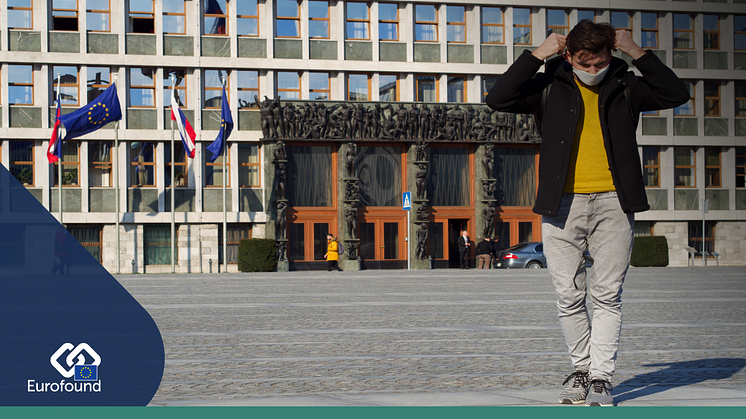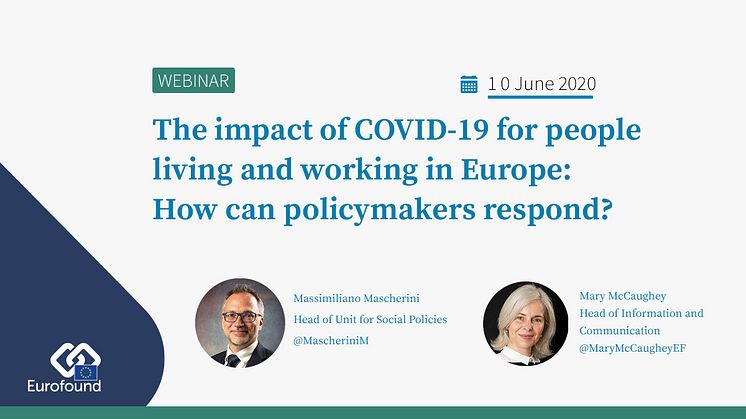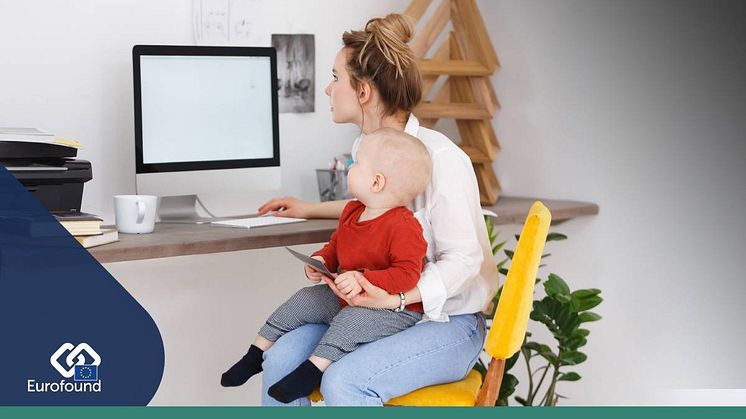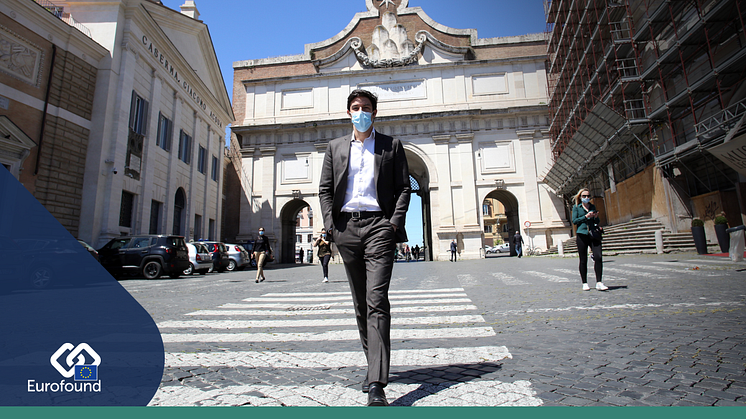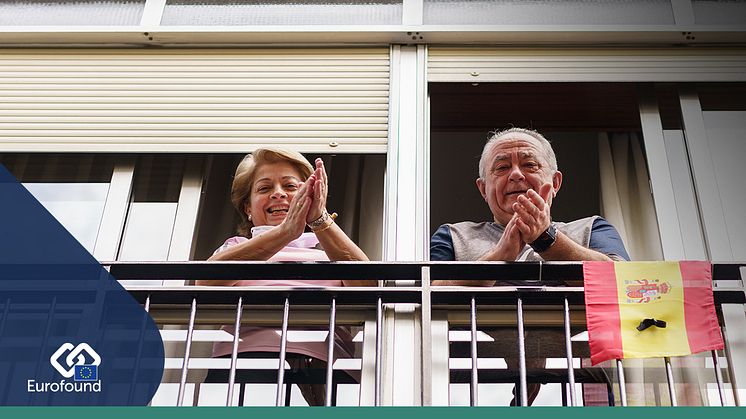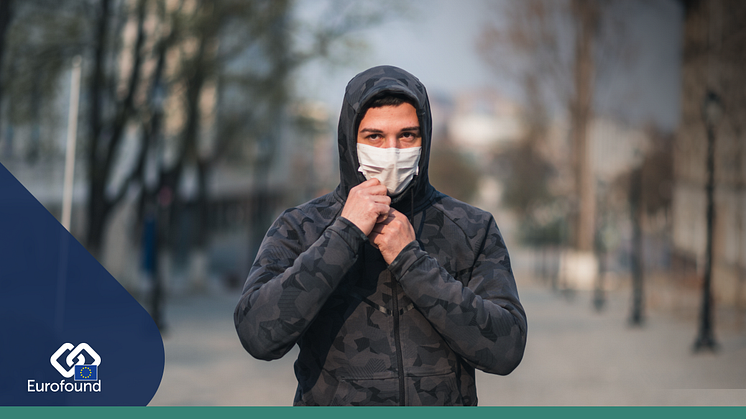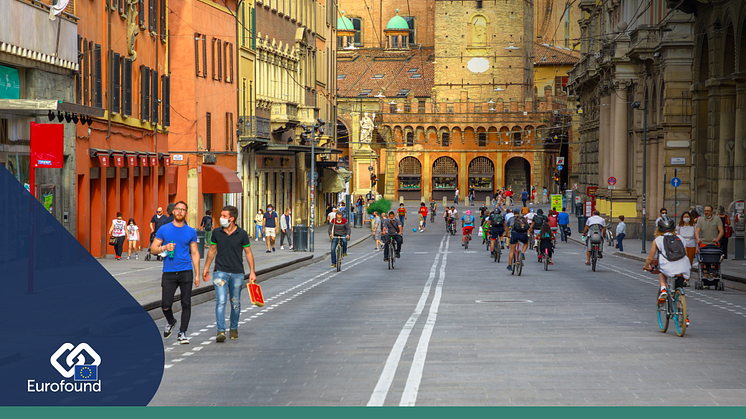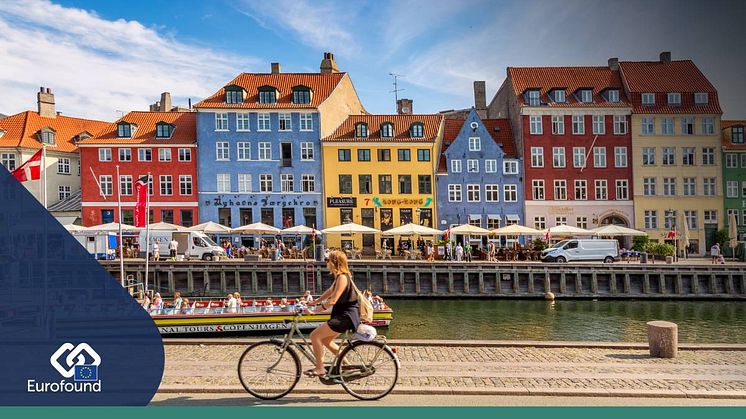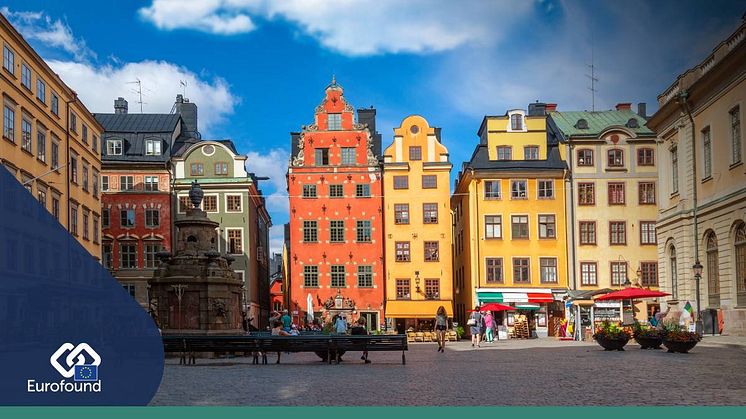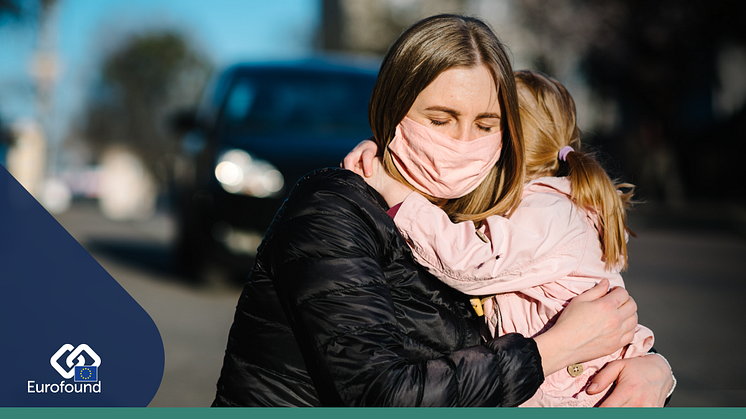
News -
New pan-EU survey highlights plummeting optimism, low trust levels, alongside rising fears of job loss and financial insecurity
The first results from Eurofound’s Living, working and COVID-19 online survey show a Europe grappling to respond to the crisis caused by the COVID-19 pandemic with many respondents reporting high levels of loneliness coupled with low levels of optimism about their future. Overall, people are showing some decrease in their well-being. People across the EU are also reporting very low levels of trust in the EU and in their national governments. The survey findings also confirm an increase in telework and, for a growing number of respondents, a feeling of insecurity regarding their jobs with a dramatic decrease in working time. Finally, the survey paints a stark picture of Europeans across the 27 Member States who have seen their economic situation worsen and are deeply concerned about their financial future.
The crisis caused by the pandemic has had a strong effect on people’s optimism about their future. In April 2020, less than half (46%) of EU respondents were optimistic about their own future compared to almost two-thirds (64%) as recorded in the European Quality of Life Survey in 2016. Respondents from the most heavily hit countries in the EU (France, Italy, Belgium, Spain) were all among those least optimistic about their future and below the EU average.
At European level, mental well-being has also been affected with the lowest rates (on a scale 0-100) among those unable to work due to disability or illness (37) and those unemployed (39). People aged 50 or over had higher mental well-being (50) than those under 35 and those in between (both scoring 47). At European level 16% of respondents also said that they were lonely “all or most of the time” over the previous two weeks, with 20% of young respondents (under 35) feeling this way. Overall, loneliness was most common among respondents in France (22%) and least common in Finland (9%). This is strikingly different from usual findings in other surveys: in the 2016 EQLS overall loneliness was just 6%, decreasing to 4% for under-35s.
Trust levels have also been clearly affected during this period with highest levels reported in healthcare systems. Even countries hardest hit by the pandemic such as Belgium, Italy, Spain and France, are reporting trust in healthcare systems above the EU average and well ahead of trust in their governments, the media and the EU. On the other hand, people across the EU report very low levels of trust in the EU in the wake of COVID-19, particularly in several traditionally pro-EU Member States such as France, Italy and Spain, raising fundamental questions about perceived EU action during the crisis.
Teleworking has taken off in all EU countries with over a third of those in employment starting to work remotely as a result of the pandemic. The highest number of those working from home was reported in the Nordic and Benelux countries. These jobs also reported fewer cuts in working time. Almost a quarter of all those working remotely have children under 12.
But while more people are teleworking than ever before, one quarter of respondents also reported having lost their job either temporarily or permanently - with young men most affected. Half of respondents are seeing a reduction in their working hours, especially in Romania, Italy, France, Cyprus and Greece. The Nordic countries have reported the fewest reductions in working time.
Unsurprisingly then perhaps, almost 40% report their financial situation as worse than before the pandemic. Close to half are indicating their households cannot make ends meet and over half of all EU respondents report they cannot maintain their standard of living without an income. People’s fears about their financial future vary greatly between Member States, with the lowest levels of anxiety reported in Denmark (10%) and highest in Bulgaria (62%).
Read more:
- Living, working and COVID-19: First findings – April 2020
- Living, working and COVID-19: Data
- Topic page: Trust
- Forthcoming publication: Living, working and COVID-19 - Overview report
Living, working and COVID-19 web survey
To investigate the impact of the crisis on well-being, work and telework and on the financial situation of Europeans, Eurofound launched an online survey Living, working and COVID-19 on 9 April. With over 85,000 people across Europe taking part in the survey and 62,755 complete replies to date, these first results highlight the impact of the COVID-19 pandemic on people’s quality of life and work. Final results on the impact of these changes over time will be published in September. Eurofound is monitoring the evolving situation regarding measures taken by policy actors to combat the effects of the pandemic on living and working conditions. It will also provide in-depth analyses of specific topics.
More information can be found at https://www.eurofound.europa.eu/topic/covid-19#s-02
Note:
This news piece was updated on 10 June in order to reflect updated calculations on the WHO-5 mental well-being index.


